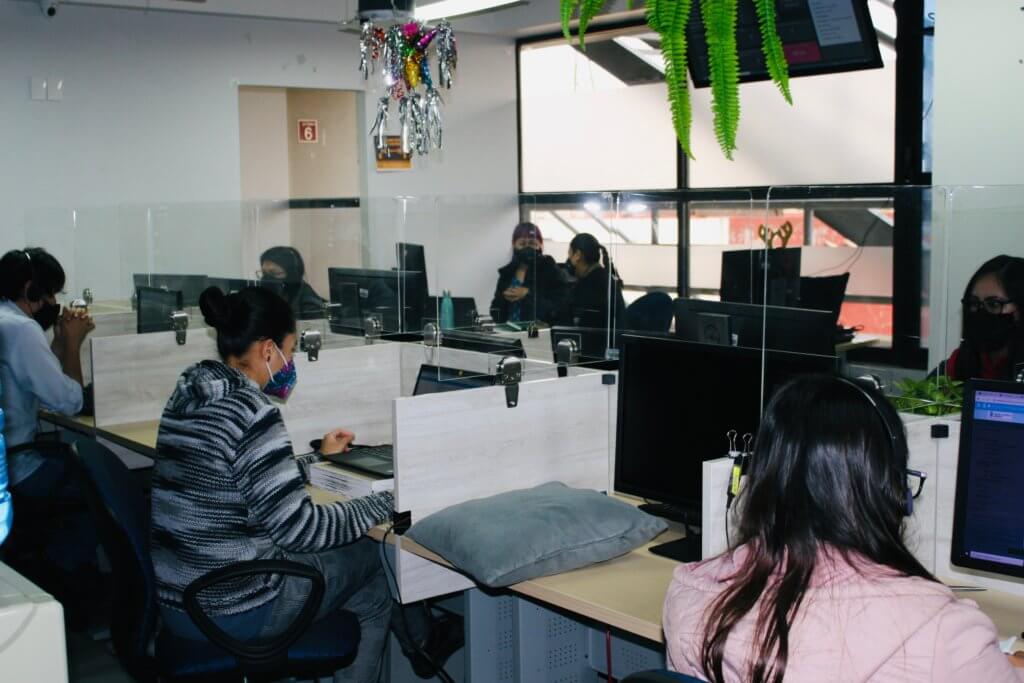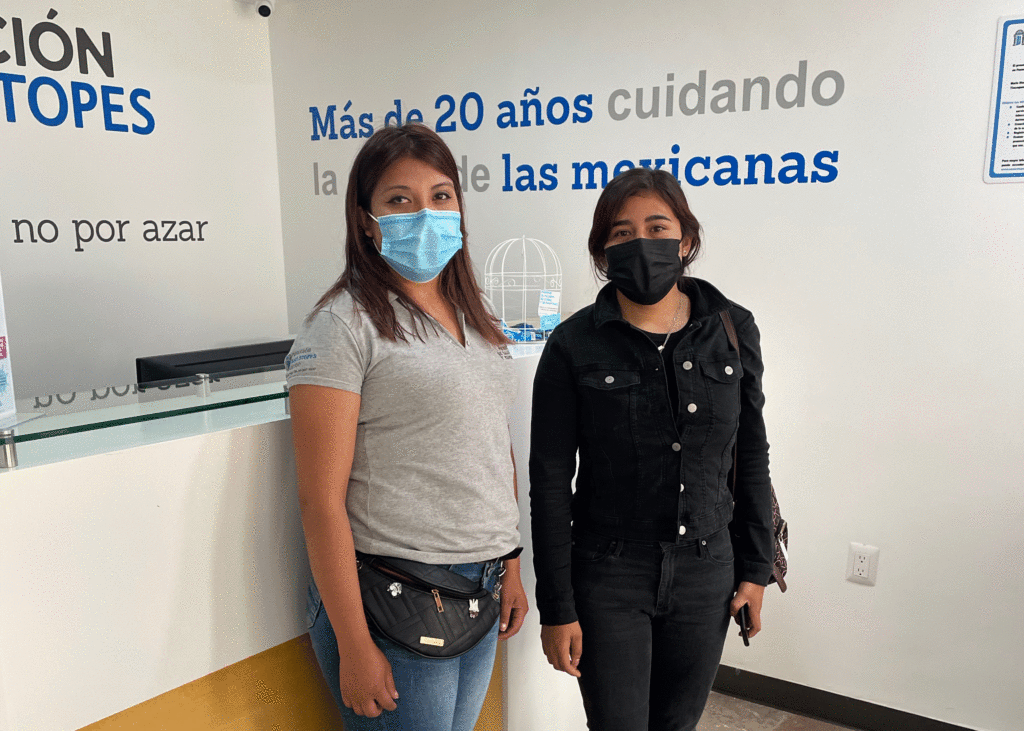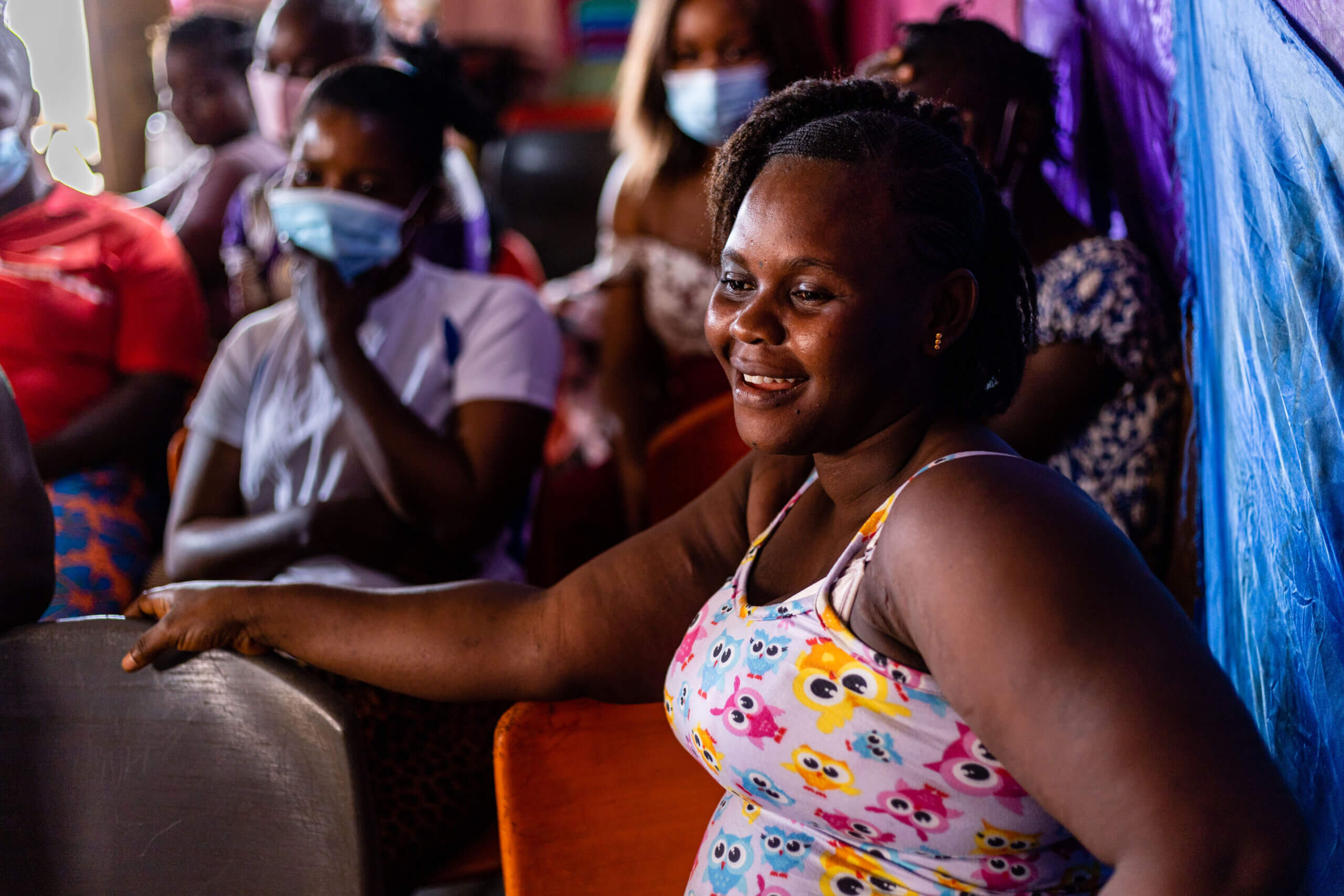In Mexico, supporting women through abortion
Every day, Marlene and Dulce arrive at the MSI Mexico call center not knowing what the day will bring. They are part of a team of just twenty people who field 13,000 calls, texts and messages every month—and some can be difficult. Many of the women calling are facing unintended pregnancies, and they can be stressed, nervous or even panicked.
“The first calls you take can really impact you,” Dulce, who trains call center representatives, explains. “But our representatives learn how to deal with women in crisis with empathy.”

A day at the call center
The call center is available 24 hours a day, 7 days a week, 365 days a year. During the day and into the evening, representatives field questions over WhatsApp, Facebook and phone. As shift leader, Marlene switches shifts—sometimes working mornings, other times fielding calls late into the evening.
Overnight, a doctor is available to handle any emergencies that may arise. Marlene and her colleagues triage normal worries from medical emergencies, so that women get the right level of support quickly.
Many clients are looking for information about abortion—and the vast majority go on to make an appointment. But they often have misconceptions about the procedure itself, and Marlene and her colleagues devote much of their time to answering clients’ questions and putting their minds at ease.
When a client is very emotional, Marlene focuses on helping her calm down. She’s trained to respond with warmth and compassion, assuring clients: We’ll help you through this. We’re here with you. When the caller has been reassured, Marlene can move on to making an appointment.
Helping women in crisis
“Sometimes, we can hear a man sitting next to the caller,” Dulce explains. “Saying, tell her this, don’t tell her that, don’t say you want contraception.”
When call center representatives have reason to believe that a woman is being mistreated or pressured into an abortion, they take steps to protect her. Often, Marlene will leave notes for the receptionist and medical staff at the clinic, telling them not to let the woman’s partner into the exam room with her. When the woman is alone with a doctor, they can offer to connect her with a local NGO that helps women in abusive relationships.
If a partner is persistent, medical staff are trained with a surprisingly effective technique: Ignore him. They simply don’t respond to his interruptions and focus on asking the woman what she wants. Ultimately, it’s always the woman’s decision, and everyone at MSI, from the call center representative to the doctor, works to ensure that she’s the one making the choice.

From shame to solidarity
For some women, having an abortion is a straightforward decision: They call, make their appointment, and quickly move on with their lives. But others need support. “Many of our clients don’t have anyone they can trust to talk about it,” Marlene explains.
MSI invites every client to participate in a monthly support group, hosted by a partner NGO. There, women can talk with other women about what they’ve experienced—and the impact is often transformative. Women who enter the room shy and nervous walk away empowered to share their experiences and help others.
“We’ll have women leave us their phone numbers,” Dulce says. They offer to answer questions for women going through the same experience—reassuring them that MSI is safe, comfortable and there to help them.
Making a difference
Working as a call center representative can be difficult. “Sometimes, after a call, I have to just take five minutes,” Marlene says. “It can be a lot.” Along with the emotional aspects of the work, team members face threats and abuse from people who oppose choice. They are careful when talking about their work with new friends. “I don’t know if that person is supportive and I don’t want to try to convince someone,” said Marlene. But ultimately, every member of the team is committed to the mission: Helping women control their own bodies and futures.
At every step of the journey—from the first contact to support after an abortion—Marlene and her team are there to assure women that they aren’t alone. By making sure clients feel supported and cared for, they help them through a difficult time, so they can continue on their chosen paths.






